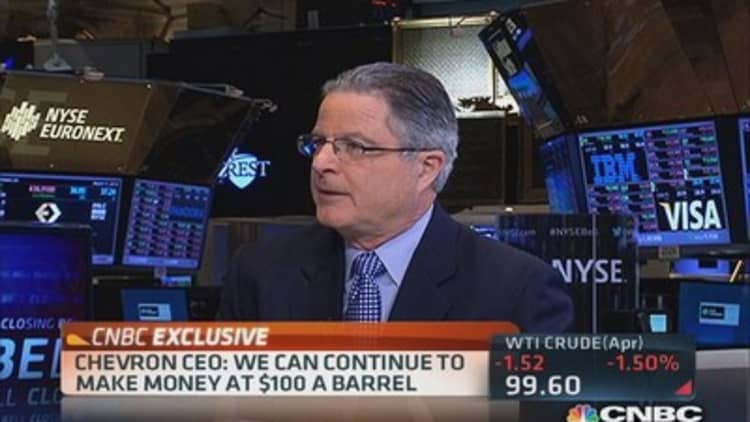
Chevron plans to increase its oil and gas production by 20 percent by 2017, but most of the growth will be abroad, in part because U.S. policy isn't "pro-development," CEO John Watson told CNBC's "Closing Bell" on Tuesday.
"We've seen oil and gas production increase nicely in the U.S. over the last few years, but it's all on private land. On federal lands, and the [government] owns a lot of land, we haven't seen that production increase," said Watson, the head of the country's second-largest oil company, behind Exxon Mobil.
Some 85 percent of the outer continental shelf is "off limits to development," he said.
(Read more: )
Chevron, based in San Ramon, Calif., is "spending a little bit less in 2014 versus 2013," but Watson said the firm plans spend $40 billion developing oil and gas around the world. About a quarter of the funds are slated for spending in the U.S.
''Increasingly, companies are having to say no to resources that we thought we could develop years ago because of those higher costs," he said, citing higher drilling expenses. He called for "reasonable environmental policies and maintaining the kind of tax structure that encourages development" to spur domestic production.
(Read more: Why US can export nat gas without raising prices)
Some experts believe that deep-water rigging is the future of U.S. energy development, but Watson urged caution when exploring rigging methods, noting that the return on investment should be well worth the risk.
"A deep-water rig and all the other services around it can cost a million dollars a day drilling, so it's an expensive, high-risk business," he said, adding that the deep-water developments in the Gulf of Mexico compete nicely.
—By CNBC's Karma Allen. Follow him on Twitter @iam_karma


